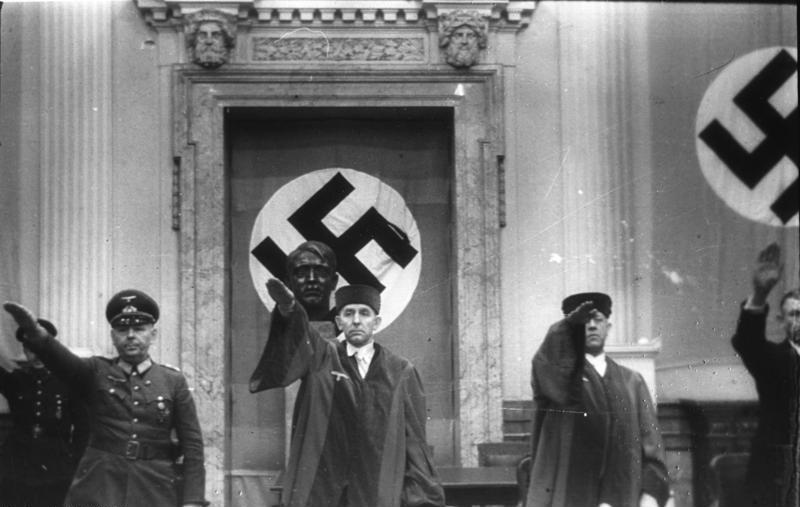
Sondergericht
A Sondergericht (plural: Sondergerichte) was a German "special court". After taking power in 1933, the Nazis quickly moved to remove internal opposition to the Nazi regime in Germany. The legal system became one of many tools for this aim and the Nazis gradually supplanted the normal justice system with political courts with wide-ranging powers. The function of the special courts was to intimidate the German public, but as they expanded their scope and took over roles previously done by ordinary courts such as Amtsgerichte this function became diluted.
Special courts had existed in Germany as far back as the nineteenth century. They had generally been set up temporarily in response to some major but localised civil disturbance and then quickly dissolved once they had served their purpose. A more permanent national network of Special Courts came into being during 1933, soon after the passage of the Reichstag Fire Decree, which all but eliminated civil liberties. The scope of its power was successively augmented by the
The number of Special Courts increased from 26 in 1933 to 74 in 1942.
A special court had three judges, and the defense counsel was appointed by the court. Even as heavy-handed as justice was in Nazi Germany, defendants were afforded at least nominal protections under the regular courts' rules and procedures. These protections were swept away in the special courts, since they existed outside the ordinary judicial system. There was no possibility of appeal, and verdicts could be executed at once. The court decided the extent of evidence to consider, and "the defense attorneys couldn't question the proof of the charges".[1]
Other occupied territories[edit]
In countries under German military occupation, such as Norway, Sondergerichte were also set up. Special penal codes were set up, e.g. the Polensonderstrafrechtsverordnung (Poland Special Criminal Law Regulation).
Effect[edit]
Between 1933 and 1945, 12,000 Germans were executed on the orders of the Sondergerichte set up by the Nazi regime.[9]
Especially during the first years of their existence they "had a strong deterrent effect" against opposition to the Nazis; the German public was intimidated through "arbitrary psychological terror".[10]